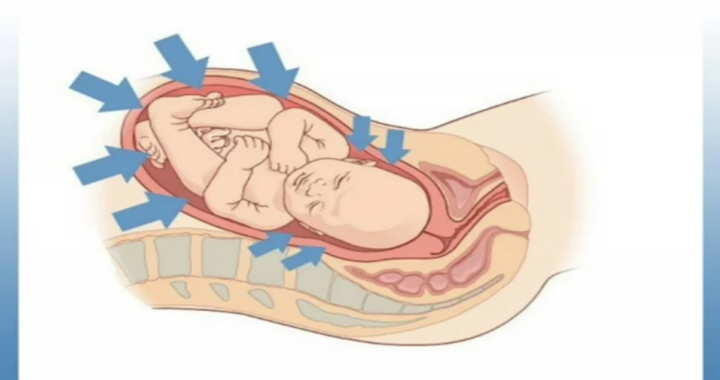Does Vaping Have Calories? Facts You Need to Know

Does vaping have calories? Yes, vape juice contains calories, mainly from ingredients like vegetable glycerin and propylene glycol. However, the amount is minimal and unlikely to affect your daily caloric intake or weight. Read on to learn about the composition of vape juice, how vaping compares to traditional smoking, and the broader health implications.
Key Takeaways
- Vaping does contain some calories, primarily from vegetable glycerin and propylene glycol, but the caloric intake is negligible and unlikely to impact weight management.
- While nicotine can initially suppress appetite and slightly boost metabolism, relying on vaping for weight control is not advisable due to addiction risks and potential negative health effects.
- Vaping is compatible with keto diets and doesn’t break intermittent fasting rules, making it a convenient option for those on strict dietary regimens.
What is Vaping, and How Does It Work?
Vaping is the act of inhaling vapors produced by a vape device, which uses an electric method to heat e-juice and create vapor instead of burning it like traditional cigarettes. This aerosol is created by heating a liquid in e-cigarettes, which primarily contain nicotine along with various chemicals and flavorings. This method lets users experience the sensation of smoking without the harmful effects of combustion.
Vaping devices include key components such as a battery, a heating coil, and a liquid tank. Common types of vaping devices include disposable vapes and refillable vape pens, catering to different preferences and lifestyles.
Whether you’re using a disposable vape or a more advanced device, the basic principle remains the same—delivering nicotine through vapor rather than smoke.
Composition of Vape Juice
Vape juice, or e-liquid, is typically made from four main ingredients. These include vegetable glycerin (VG), propylene glycol (PG), flavorings, and nicotine. Both VG and PG contribute calories to the vape juice, with approximately four calories per gram. These ingredients are responsible for producing the vapor and carrying the flavor, making the vaping experience enjoyable.

Flavorings in vape juices are often artificial compounds that are either low in calories or calorie-free. Thus, the sweet taste of your favorite e-juice comes without a significant caloric burden. A typical 10ml bottle of vape juice contains about 40 calories, mostly from VG and PG. This is relatively minimal, especially when compared to the calorie content of food and drinks.
Overall, while vape juices do contain some calories, the amount is not substantial enough to have a significant impact on your daily caloric intake. Knowing the composition of your vape liquid enables you to make more informed decisions about your vaping habits and their potential effects on your health, especially since vaping has calories.
Do Vape Juices Contain Calories?
Vape juices contain calories, primarily from base ingredients like vegetable glycerin and propylene glycol. A typical bottle of vape juice, around 40ml, can have approximately 200 calories. However, these calories are not substantial enough to significantly affect weight.
With about four calories per gram, the overall impact on your calorie intake is minimal. How many calories flavorings in vape juices generally do not add significant calories, as most are calorie-free or contribute very few calories.
Thus, while vaping adds to your calorie count, the impact is considered negligible.
Can You Absorb Calories from Vaping?
You cannot absorb calories from vaping. Calories cannot be absorbed via inhalation; hence, vaping does not contribute to caloric intake as food does. Even though vape juice contains ingredients that have calories, these calories are not absorbed by the body in the same way as when you eat or drink.
Concerns about caloric absorption from vaping are common but largely unfounded. The negligible caloric intake from vaping is unlikely to significantly impact weight control. So, if you’re worried about gaining weight from vaping, rest assured that it’s not a concern.
Impact of Nicotine on Weight
Nicotine can suppress appetite suppressant, but it is not a reliable method for weight control. Vaping nicotine has been linked to temporarily reducing appetite. This is because nicotine can suppress appetite and increase metabolism, leading to increased calorie burning.

Besides suppressing appetite, nicotine may increase fat breakdown in the body. Short-term nicotine use may help reduce weight gain. However, using vaping or nicotine products solely for weight loss is not advisable due to nicotine’s addictive nature and potential health risks.
While some individuals may experience decreased appetite and weight loss due to nicotine, it is important to remember that nicotine is highly addictive and has side effects impacting weight management. Relying on nicotine for weight control is neither healthy nor sustainable.
Does Vaping Affect Blood Sugar Levels?
Nicotine consumption, whether from smoking or vaping, can elevate blood sugar levels. However, vaping may not significantly alter blood sugar levels compared to traditional smoking. Individuals who vape have a 22% increased risk of developing prediabetes.
Using e-cigarettes increases the likelihood of developing diabetes by 30% to 40%. While vaping is expected to have minimal impact on blood sugar levels, the long-term health risks associated with nicotine consumption should not be overlooked.
Vaping and Diets: Keto and Intermittent Fasting
Vaping does not interfere with ketosis, making it compatible with keto diets. Vape juice does not contain carbohydrates, meaning it does not impact the state of ketosis, which is crucial for a keto diet. Additionally, vaping does not significantly alter blood sugar levels, which is beneficial for managing diabetes.
For those practicing intermittent fasting, vaping does not break your fast, allowing you to continue your weight loss and gut health goals without interruption. This makes vaping a convenient option for those following strict dietary regimens while still enjoying their vape products.
Quitting Smoking and Weight Changes
Weight gain after quitting smoking can result from a slower metabolism and increased food consumption. Many individuals gain weight after quitting smoking due to increased hunger from withdrawal symptoms and the loss of nicotine’s appetite suppression effect. Switching from cigarettes to vaping can also increase appetite.
However, vaping generally helps with weight loss as nicotine suppresses appetite. As individuals reduce nicotine dependence through vaping, they may experience increased appetite and a lower heart rate. Maintaining an active lifestyle is essential to prevent weight gain after quitting smoking.

Weight management is easier when ex-smokers carefully plan meals and physical activities. Incorporating strength training helps maintain muscle mass, enhances metabolism, and supports weight loss efforts. Regular physical activity helps regulate appetite hormones, potentially reducing the risk of overeating and losing weight.
Side Effects of Vaping on Health
Vaping poses various health risks, particularly due to nicotine and other harmful chemicals. Nicotine in electronic cigarettes can impair brain development in adolescents, affecting attention, learning, and mood. Youth who vape are more likely to transition to smoking traditional cigarettes in the future.
The aerosol produced by e-cigarettes contains cancer-causing substances and fine particles harmful to lung health. Reports indicate that some users, particularly among youth, have experienced seizures after using e-cigarettes.
The health risks associated with nicotine in vaping include addiction and side effects impacting weight management.
The Importance of Balanced Diet and Exercise
Maintaining a healthy lifestyle, balanced diet, and regular exercise is crucial for overall well-being and weight management. The calorie contribution from vaping liquids is minimal and does not significantly affect weight. Thus, focusing on a balanced diet and regular exercise is vital for effective weight management.
Effective weight management relies on a balanced diet and regular exercise. Achieving a calorie deficit by balancing food intake with physical activity is essential for effective weight management. Aiming for at least 150 minutes of moderate exercise weekly can significantly contribute to overall health and help burn calories to lose weight for weight maintenance while also considering significant caloric intake.
Combining dietary changes with exercise is typically more effective for significant weight loss than relying on either strategy alone. A balanced diet and regular exercise are essential for effective weight management, irrespective of the minimal caloric impact of vaping.
Summary
In summary, while vape juices do contain some calories, the amount is minimal and unlikely to impact your weight significantly. Vaping does not contribute to caloric intake in the same way as food, and the negligible caloric impact is not a cause for concern.

However, nicotine in vape products can affect your appetite and metabolism, which may influence weight management.
It’s essential to maintain a balanced diet and regular exercise to manage weight effectively. Vaping can fit into various dietary regimens like keto and intermittent fasting without breaking your fast or ketosis. Ultimately, making informed choices about your vaping habits and focusing on a healthy lifestyle will help you achieve your weight management goals.
Frequently Asked Questions
Do vape juices contain calories?
Yes, vape juices do contain calories from ingredients like vegetable glycerin and propylene glycol, but it’s a minimal amount and shouldn’t affect your weight much.
Can you absorb calories from vaping?
You can’t absorb calories from vaping since inhalation doesn’t provide the body with calories like food does. So, vaping won’t add to your caloric intake.
Does vaping affect blood sugar levels?
Yes, vaping can raise blood sugar levels due to nicotine, which may increase the risk of prediabetes and diabetes. It’s important to consider this impact on your health.
How does nicotine impact weight?
Nicotine can help suppress your appetite and boost your metabolism, potentially leading to short-term weight loss. But relying on it for weight control isn’t a healthy choice.
Is vaping compatible with keto and intermittent fasting?
Vaping won’t disrupt your keto lifestyle or break your intermittent fast, so you’re good to go!

 Hiking for Mental Health: The Healing Power of Trails
Hiking for Mental Health: The Healing Power of Trails  Diet vs. Lifestyle Change: Knowing the Difference
Diet vs. Lifestyle Change: Knowing the Difference  Sleep Like a Pro: 10 Tips Backed by Science for a Restful Night
Sleep Like a Pro: 10 Tips Backed by Science for a Restful Night  How 7Stax 7-OHMZ Tablets Support Mental Health: 7 Key Benefits
How 7Stax 7-OHMZ Tablets Support Mental Health: 7 Key Benefits  The Complications That Could Arise From Using Cytotec to Induce Labor
The Complications That Could Arise From Using Cytotec to Induce Labor  The Impact of Workplace Stress on Anxiety and Depression
The Impact of Workplace Stress on Anxiety and Depression